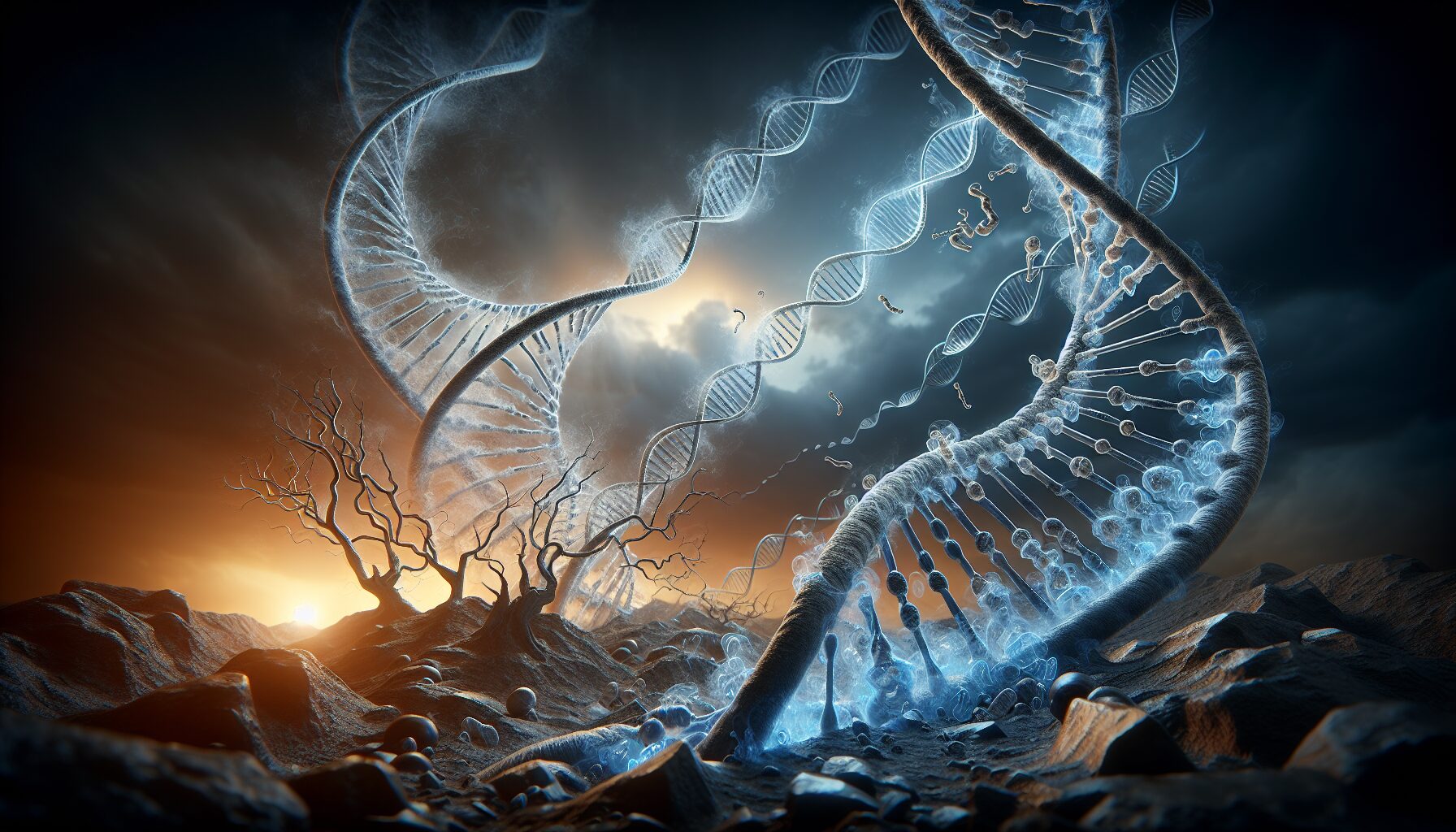The End of the Human Genome – Evolutionary Death
The human genome has long been considered the blueprint of our biological identity, but recent discussions in scientific circles propose a provocative idea: Are we witnessing an evolutionary death of the human genome?
The Human Genome: A Brief Overview
The Human Genome Project, completed in 2003, mapped the approximate 3 billion DNA base pairs and identified around 20,000-25,000 genes. This project brought revolutionary insights into the genetic underpinnings of life, offering immense potential for medicine and biotechnology.
Defining Evolutionary Death
Evolutionary death does not imply an immediate extinction, but rather a gradual decline of variability and adaptability. As species evolve, those unable to adapt to changing environments face an evolutionary dead end. In a similar vein, if the human genome loses its capacity for beneficial mutations that provide adaptive advantages, it may lead towards an evolutionary standstill.
Factors Contributing to Evolutionary Stagnation
-
Reduced Natural Selection:
In modern society, medical advancements and technology have dramatically reduced the impact of natural selection. Genetic mutations, once fatal, are often mitigated through medical intervention. This reduced selection pressure may lead to the accumulation of deleterious mutations.
-
Genetic Homogenization:
Globalization has led to increased gene flow across populations, potentially diminishing genetic diversity. While this can lead to greater genetic robustness in the short term, it risks homogenization—where beneficial mutations in isolated populations are diluted.
-
Technological Interventions:
CRISPR and other gene-editing technologies present astonishing potential. Yet, their use raises ethical and evolutionary concerns. The deliberate edit of genes might overlook complex genetic interdependencies and the long-term evolutionary potential of small variations.
Potential Outcomes
If these trends continue, the human genome could indeed face an evolutionary impasse. Below are scenarios that could emerge from an evolutionary standstill:
-
Increased Susceptibility:
With a static genome, humans could become increasingly vulnerable to environmental changes and new pathogens, lacking the genetic diversity to develop resistance naturally.
-
Reliance on Technology:
As genetic adaptability wanes, humans might become heavily reliant on technological enhancements to compensate for genetic shortcomings. This technological dependence means that the survival of the species may depend more on maintaining technological advancement than on genetic evolution.
Advocating for Genetic Diversity
Many scientists advocate for the preservation of genetic diversity as a bulwark against evolutionary stagnation. “Genetic diversity is essential for survival. It provides populations the ability to adapt to changing climates and resist new diseases,” researcher Dr. Sarah Hayward notes in a Science Daily article.
Ethical and Philosophical Implications
The discussion on the end of the human genome is not just scientific but also deeply philosophical. It raises questions about what it means to be human. Should we embrace genetic enhancement, or do we risk losing our essence? Philosopher Nick Bostrom has famously argued that
“Biological evolution is too slow for the pace of progress. We need a better system.”
The Future of Human Evolution
As we stand on the brink of this evolutionary crossroads, it’s vital to explore and understand the long-term implications of our choices. Should humanity chart a new course through technology, or should we preserve and promote natural genetic diversity?
Conclusion
The potential end of the human genome as an evolving entity poses fundamental questions about the trajectory of human evolution. While the exact future remains uncertain, fostering a balance between technological innovation and preservation of genetic diversity is likely key to sustaining our evolutionary legacy. The choice rests in our hands—and perhaps, in our genes.
